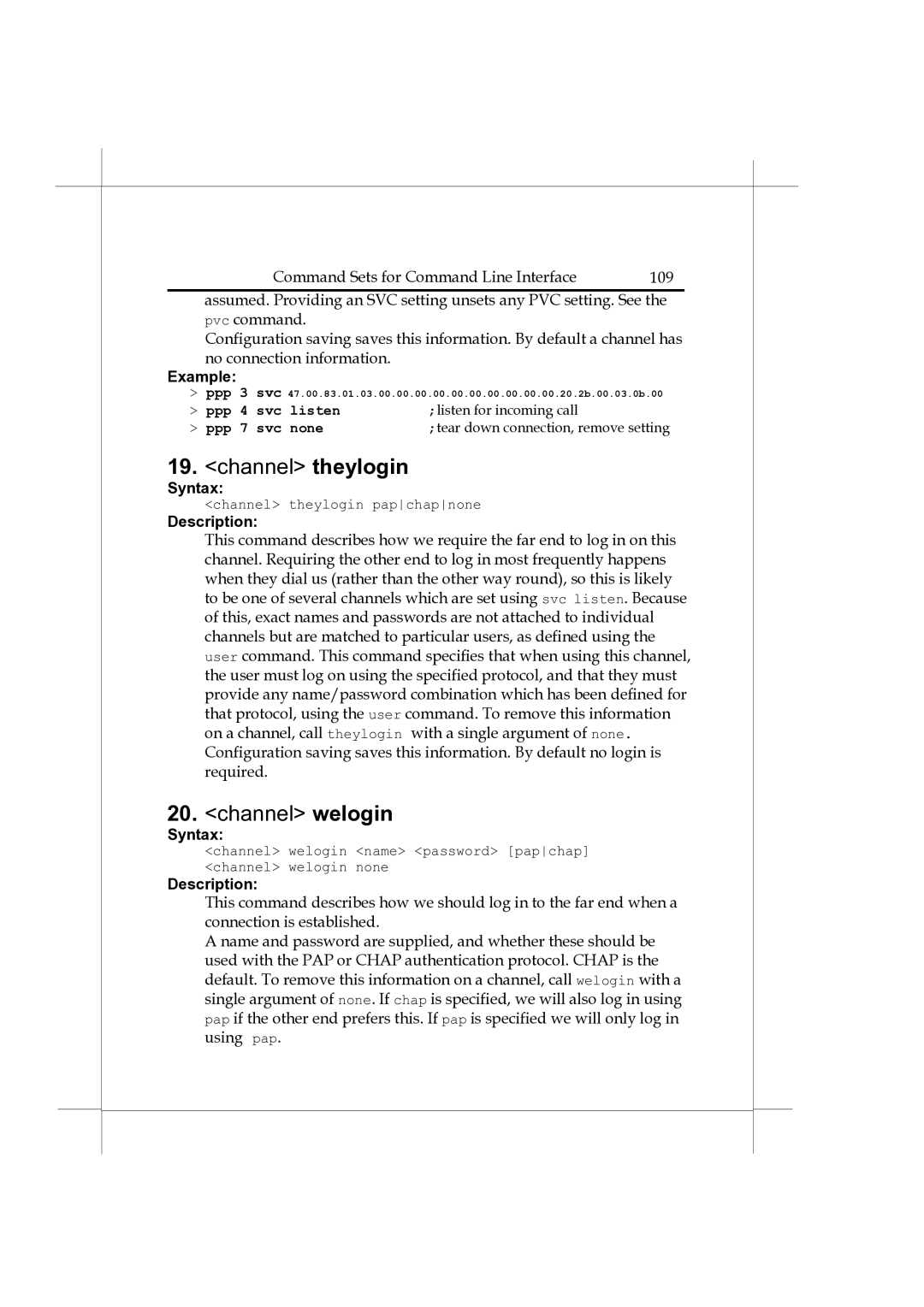
Heritage Series ADSL Bridge/ Router | 109 |
Command Sets for Command Line Interface |
assumed. Providing an SVC setting unsets any PVC setting. See the pvc command.
Configuration saving saves this information. By default a channel has no connection information.
Example:
>ppp 3 svc 47.00.83.01.03.00.00.00.00.00.00.00.00.00.00.20.2b.00.03.0b.00
> | ppp | 4 | svc | listen | ;listen for incoming call |
> | ppp | 7 | svc | none | ;tear down connection, remove setting |
19.<channel> theylogin
Syntax:
<channel> theylogin papchapnone
Description:
This command describes how we require the far end to log in on this channel. Requiring the other end to log in most frequently happens when they dial us (rather than the other way round), so this is likely to be one of several channels which are set using svc listen. Because of this, exact names and passwords are not attached to individual channels but are matched to particular users, as defined using the user command. This command specifies that when using this channel, the user must log on using the specified protocol, and that they must provide any name/password combination which has been defined for that protocol, using the user command. To remove this information on a channel, call theylogin with a single argument of none. Configuration saving saves this information. By default no login is required.
20.<channel> welogin
Syntax:
<channel> welogin <name> <password> [papchap] <channel> welogin none
Description:
This command describes how we should log in to the far end when a connection is established.
A name and password are supplied, and whether these should be used with the PAP or CHAP authentication protocol. CHAP is the default. To remove this information on a channel, call welogin with a single argument of none. If chap is specified, we will also log in using pap if the other end prefers this. If pap is specified we will only log in using pap.
